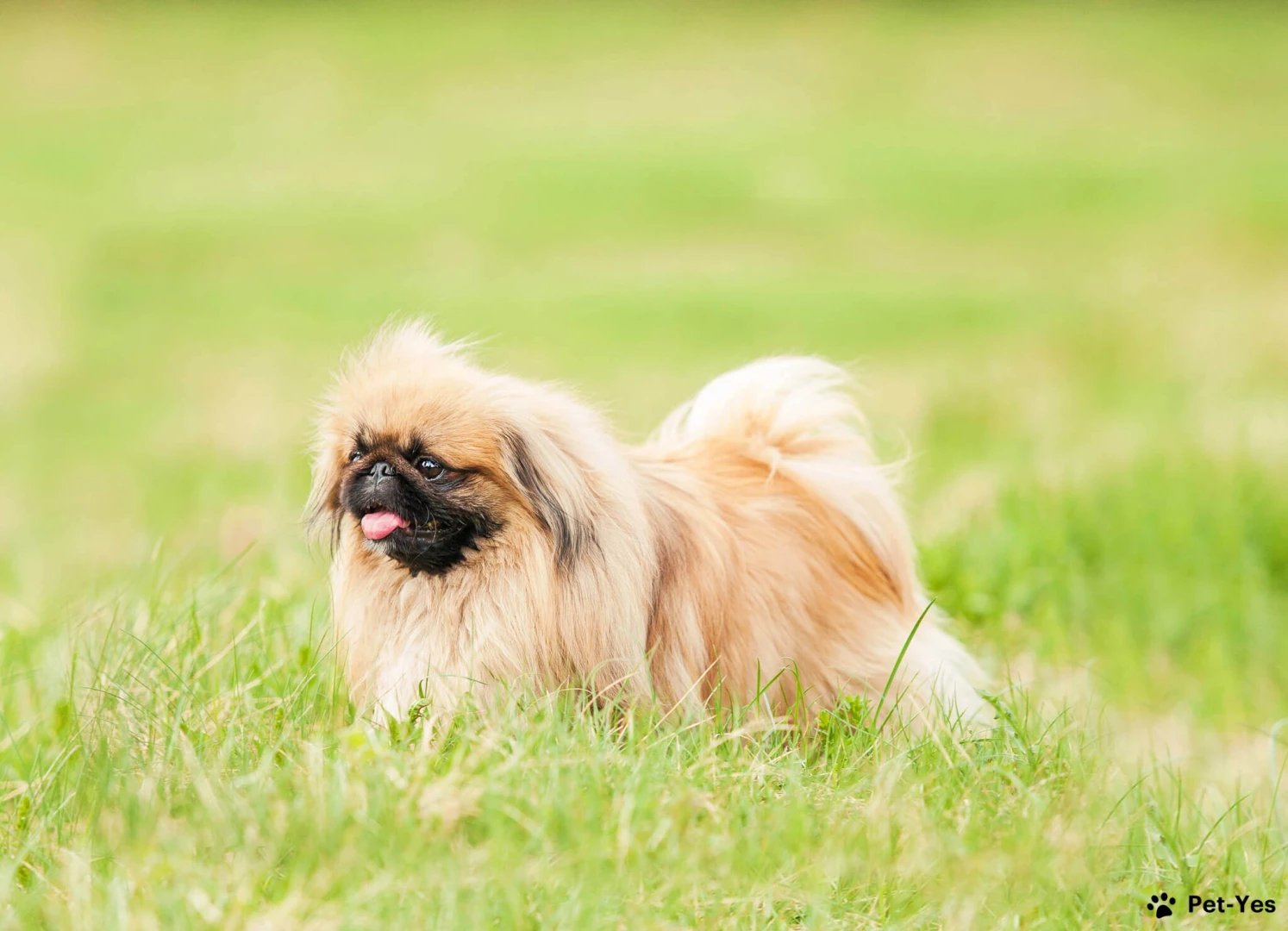On this page
Pekingese Care: Daily Routines and Essential Tips for Owners
Owning a Pekingese is a charming and rewarding experience, marked by their dignified demeanor, affectionate nature, and unique appearance. These small yet sturdy dogs are renowned for their luxurious coats, expressive eyes, and spirited personalities, making them excellent companions for individuals and families alike. However, living with a Pekingese also involves specific responsibilities and challenges that prospective owners must be prepared for. Understanding the daily life of a Pekingese can help you foster a harmonious and fulfilling relationship with your canine friend. This comprehensive guide explores what to expect when living with a Pekingese, covering daily routines, training, nutrition, health concerns, and common challenges. Additionally, we will discuss how the dietary needs of a Pekingese evolve as they age, emphasizing the importance of adapting their nutrition to support their overall health and vitality.
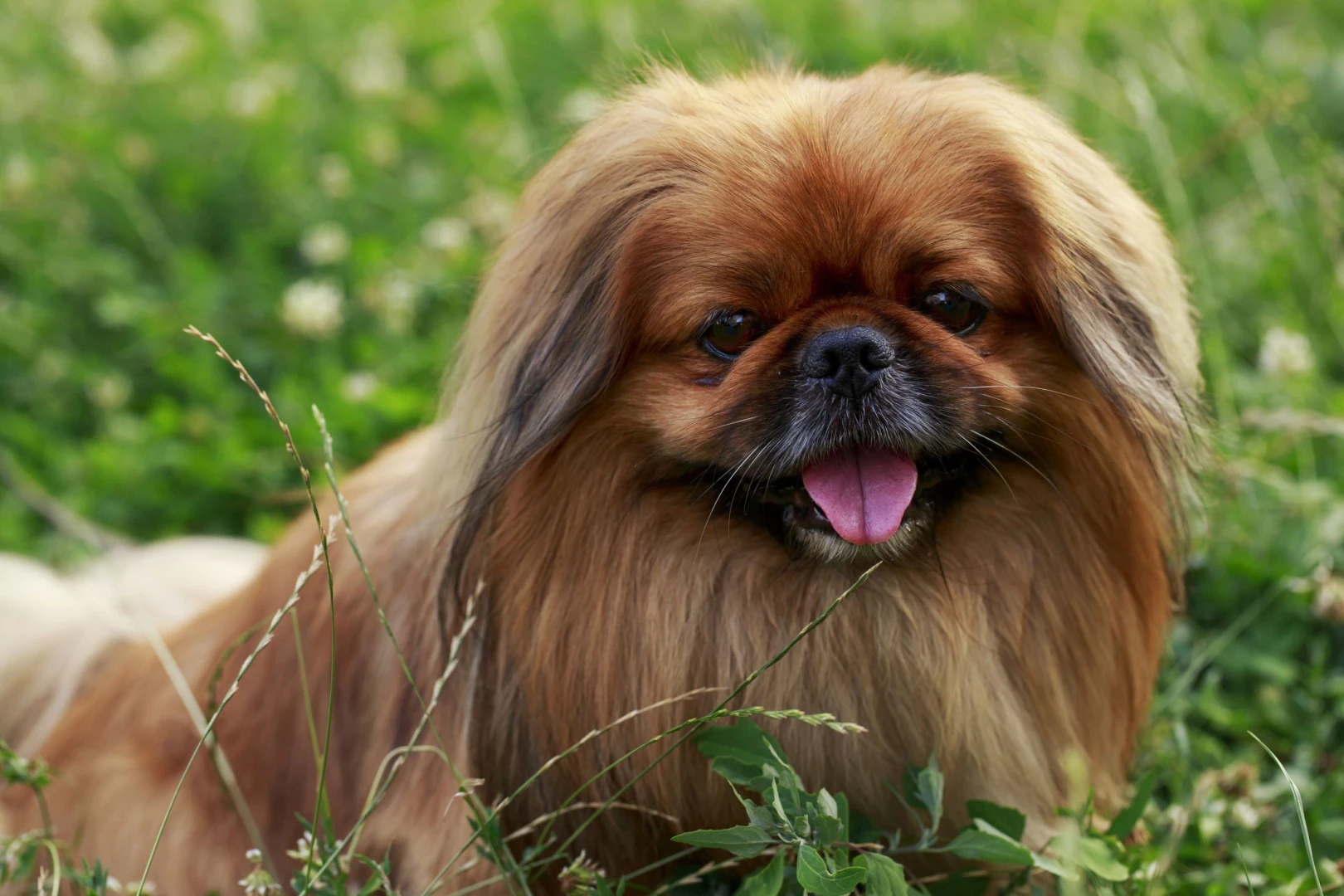
Morning Routine: Setting the Tone for the Day
Starting the day with your Pekingese sets the foundation for their behavior and energy levels. Mornings typically involve a blend of physical exercise and mental stimulation to ensure your Pekingese is energized and ready for the day ahead. According to Dr. Laura Simmons from the American Veterinary Medical Association (AVMA), "A consistent morning routine helps in reducing anxiety and promotes a sense of security in Pekingeses." Unlike the more independent Shih Tzu, Pekingeses thrive on structured activities that engage both their bodies and minds.
☀️ Morning Walk: Essential for physical exercise and exploring their environment.
🍽️ Nutritious Breakfast: A balanced meal tailored to their age and activity level.
🧠 Mental Stimulation: Interactive toys or short training sessions to engage their intelligence.
This structured start not only energizes your Pekingese but also curtails unwanted behaviors later in the day. As the morning progresses, smoothly transitioning into daytime activities ensures your pet remains engaged and happy, setting the stage for a productive and harmonious day.
Next, we'll delve into the daytime activities that keep your Pekingese engaged and mentally stimulated.

Daytime Activities: Keeping Your Pekingese Engaged
Pekingeses are highly intelligent and playful dogs that require ample mental and physical stimulation throughout the day. Engaging your Pekingese in varied activities prevents boredom and destructive behavior. Dr. Mark Thompson from VCA Animal Hospitals emphasizes, "Providing diverse activities for your Pekingese enhances their cognitive functions and overall well-being."
🧩 Puzzle Toys: Encourage problem-solving skills and keep their minds sharp.
🏃♂️ Physical Exercise: Play fetch, agility training, or engage in interactive play to burn off energy.
📚 Continued Training: Reinforce commands and introduce new ones to maintain obedience.
In comparison to the more laid-back Bulldog, Pekingeses demand a higher level of interaction and mental challenges. Keeping them occupied with diverse activities fosters a stronger bond and a well-behaved companion, ensuring your Pekingese remains a joyful and integral part of your household.
With a busy daytime routine in place, let's explore how to incorporate effective training and behavior management into your daily life.
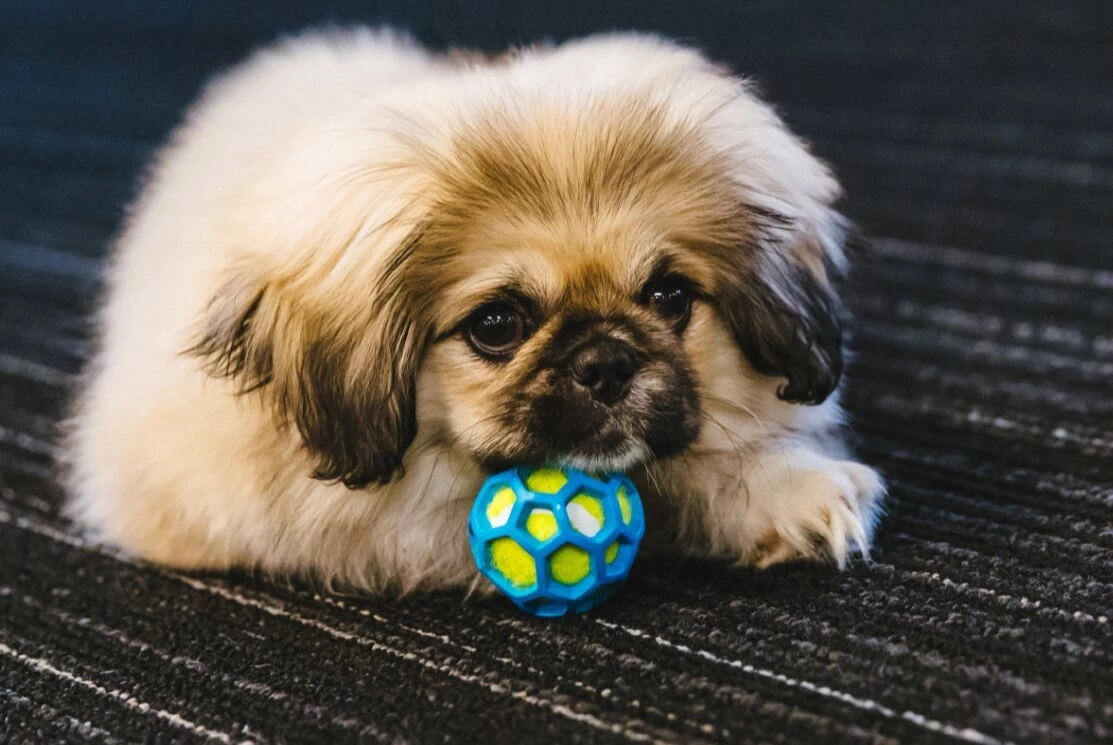
Training and Behavior Management
Training is a cornerstone of Pekingese ownership. Their eagerness to learn makes them highly trainable, but it requires consistency and patience. "Integrating training sessions into your daily routine not only teaches obedience but also strengthens your relationship with your Pekingese," says Dr. Emily Rogers from the American Kennel Club (AKC).
📅 Scheduled Training Sessions: Short and frequent to maintain focus and prevent fatigue.
🎯 Positive Reinforcement: Reward-based training methods to encourage desired behaviors.
📖 Consistent Commands: Use the same cues for commands to avoid confusion and ensure clarity.
In contrast to breeds like the stubborn Shih Tzu, Pekingeses respond exceptionally well to structured training environments. Regular training ensures they remain disciplined and responsive to commands, making daily life smoother and more enjoyable for both you and your dog.
Next, we will address common behavioral issues that may arise and how to effectively manage them.
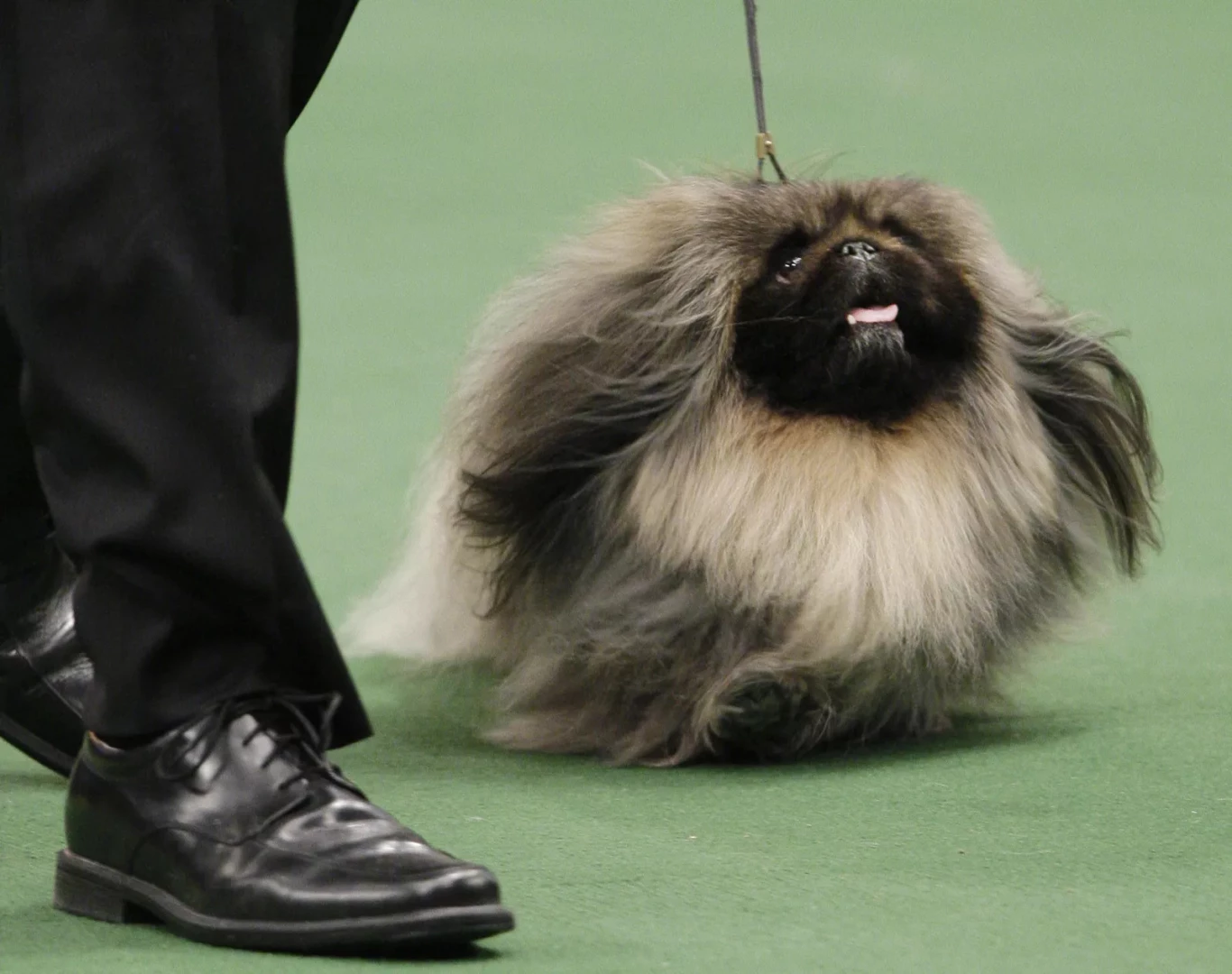
Dealing with Common Behavioral Issues
Despite their many positive traits, Pekingeses can exhibit behavioral issues if not properly managed. Common challenges include separation anxiety, excessive chewing, and overexcitement. "Addressing these issues promptly with appropriate training techniques is crucial for a harmonious household," advises Dr. Sarah Nguyen from PetMD.
🚫 Separation Anxiety: Implement gradual desensitization techniques to reduce anxiety when alone.
🔇 Curb Excessive Chewing: Provide suitable chew toys and supervise to prevent destructive behavior.
🛠️ Manage Overexcitement: Teach calm behaviors and redirect energy into positive activities.
When compared to the more easygoing Beagle, Pekingeses require a proactive approach to behavior management. Understanding and addressing these issues early can prevent long-term problems and ensure your Pekingese remains a well-adjusted member of the family, fostering a peaceful and loving home environment.
With effective training and behavior management in place, let's move on to feeding and nutrition throughout the day.
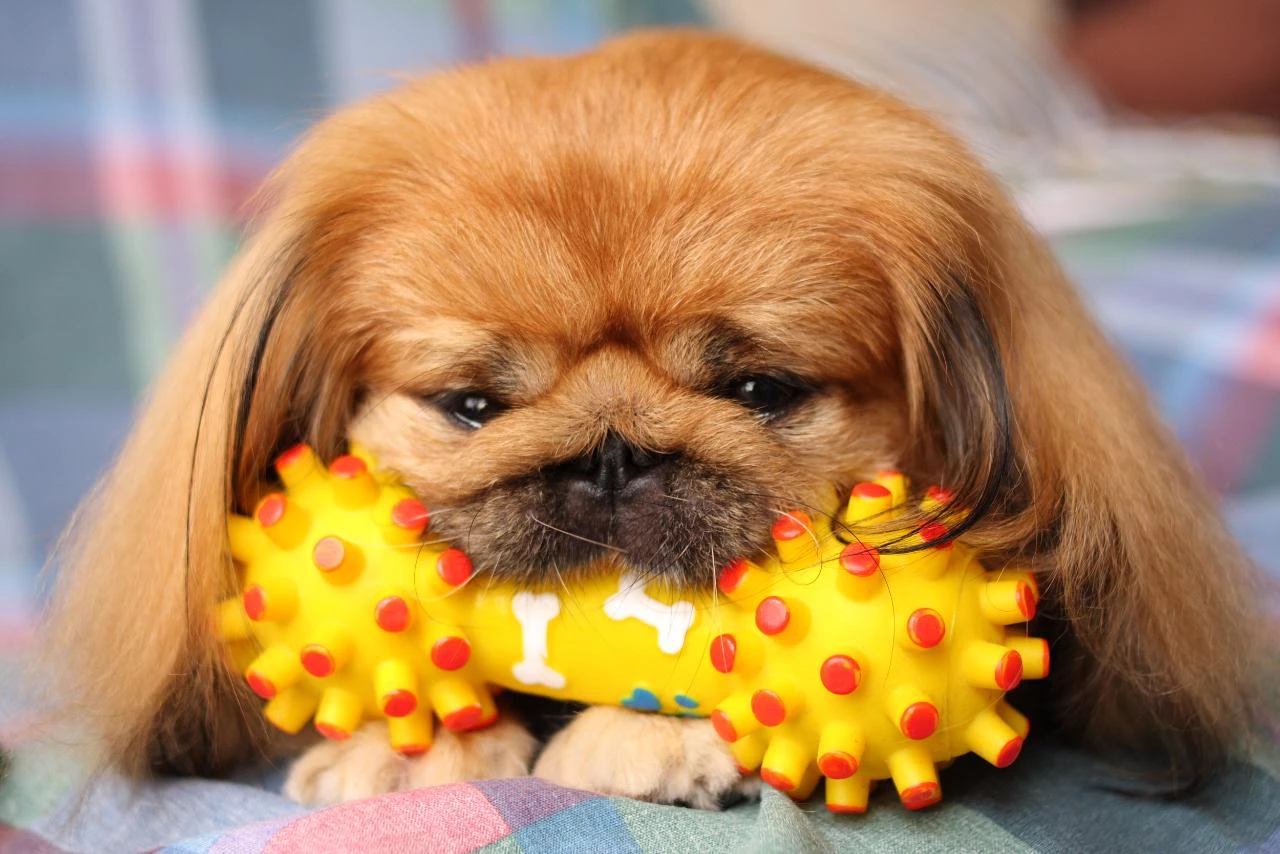
Feeding and Nutrition Throughout the Dayv
Proper nutrition is vital for the health and longevity of your Pekingese. Their dietary needs can change as they age, requiring adjustments to meal frequency and food composition. "A balanced diet tailored to your Pekingese's life stage supports their overall health and energy levels," states Dr. Karen White from the Veterinary Information Network (VIN).
🐾 Puppies: Require more frequent meals, typically three times a day, to support rapid growth.
🐕 Adults: Usually fed twice daily to maintain energy and prevent overeating.
🧓 Seniors: May benefit from smaller, more frequent meals with adjusted nutrients to support aging joints and metabolism.
In comparison to a Boxer, which has similar energy levels but different nutritional requirements, Pekingeses benefit from diets rich in protein and essential fatty acids to support their muscular build and active lifestyle. Regular consultations with your veterinarian can help tailor the perfect meal schedule for your Pekingese, ensuring they receive the necessary nutrients at each life stage for optimal health and vitality.
Next, we'll discuss the crucial aspect of hydration and how to ensure your Pekingese stays well-hydrated.
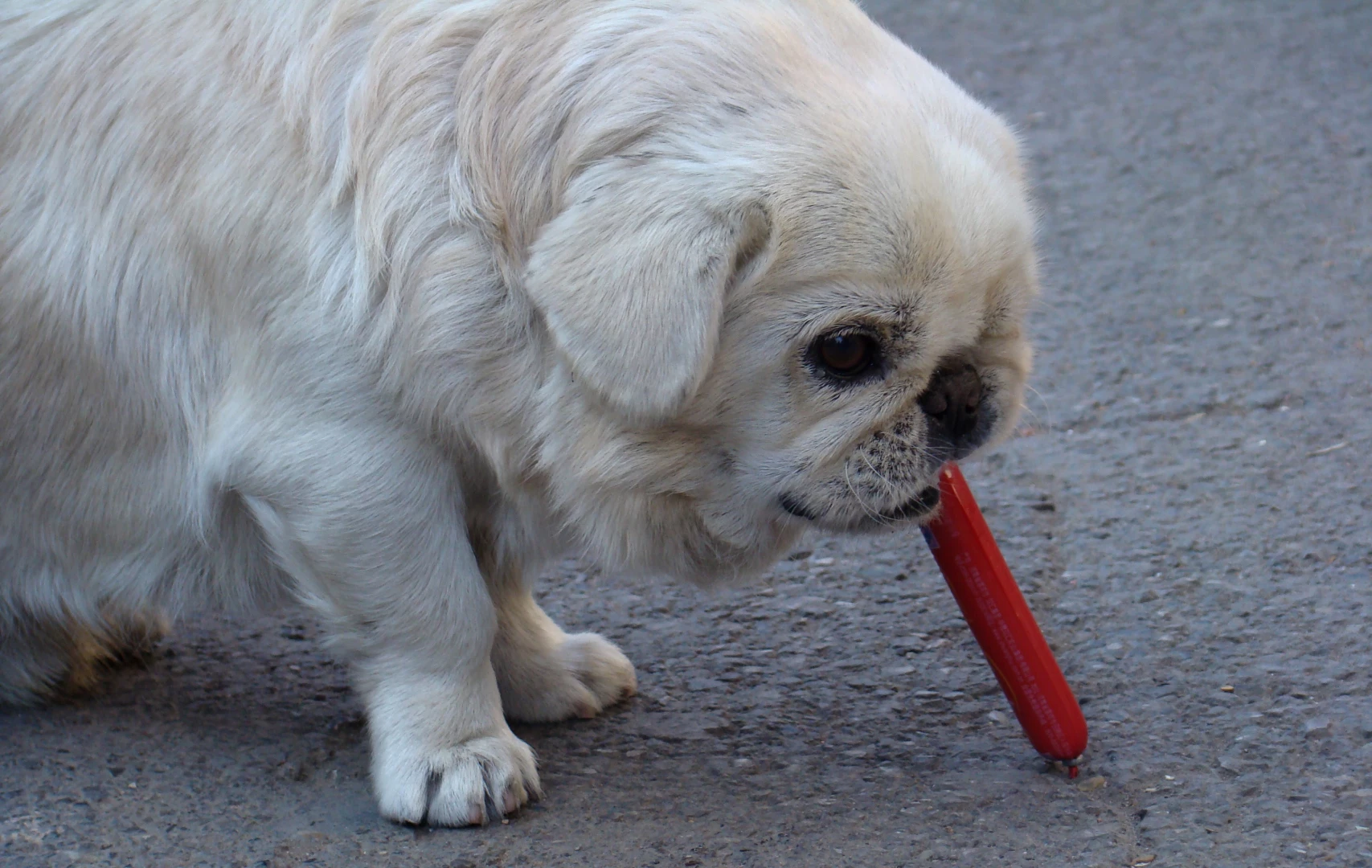
Hydration Needs: How Much Water Does a Pekingese Need?
Hydration is a critical aspect of your Pekingese's health. Adequate water intake supports digestion, circulation, and temperature regulation. "Pekingeses, due to their high activity levels, require constant access to fresh water to prevent dehydration," explains Dr. Robert King from Pet Health Network.
💧 Daily Water Intake: Approximately 1 gallon per 100 pounds of body weight, adjusted based on activity and climate.
🌡️ Environmental Factors: Increased water needs in hot climates or during vigorous exercise.
🥤 Fresh Water Availability: Ensure water bowls are clean and refilled regularly to encourage drinking.
Compared to the Greyhound, which may have lower hydration needs due to their different activity patterns, Pekingeses necessitate vigilant monitoring of their water consumption. Proper hydration is essential for maintaining their physical and mental health, especially in active households where your Pekingese engages in various physical activities throughout the day.
With nutrition and hydration covered, let's explore the evening routine to help your Pekingese wind down.
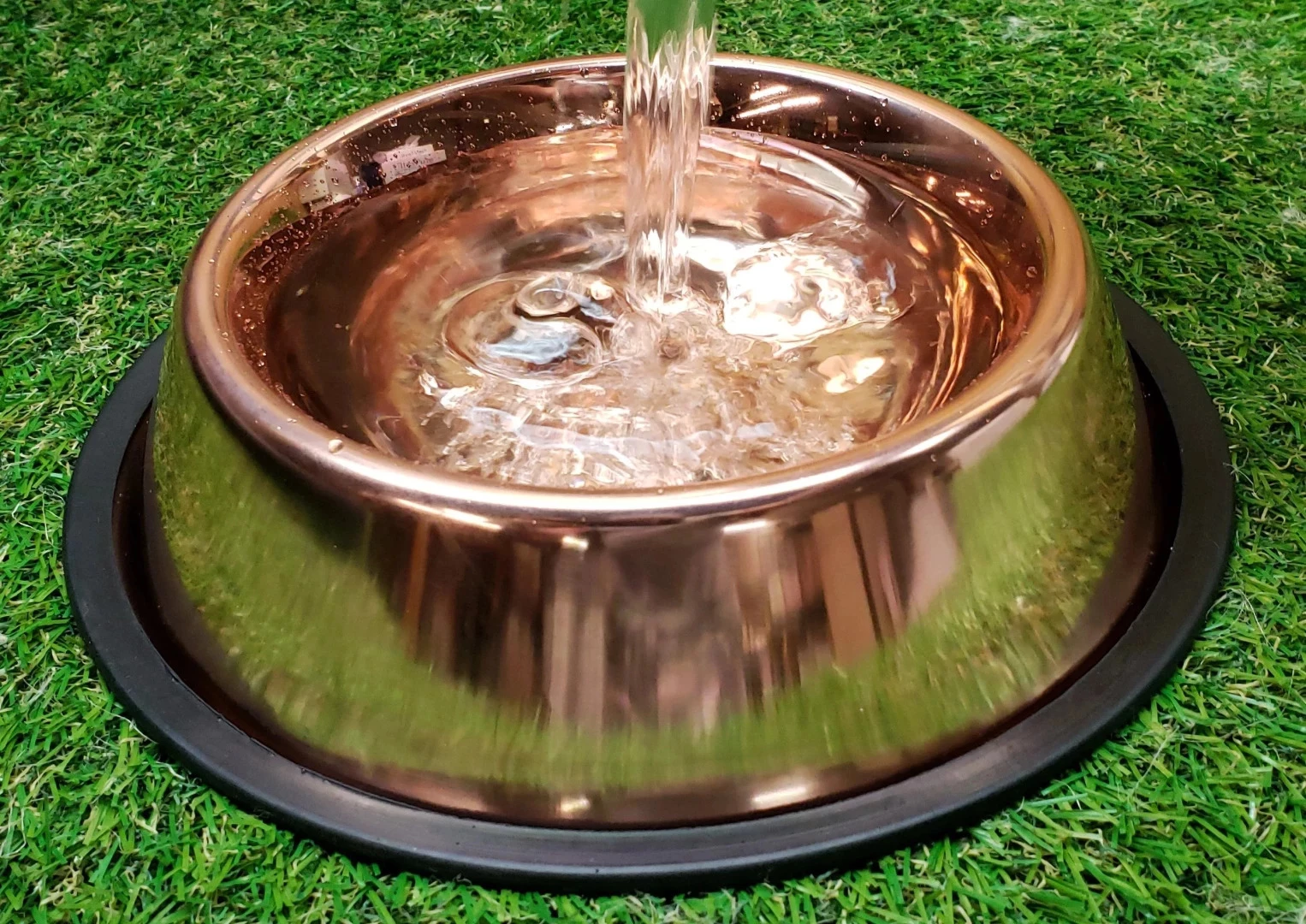
Evening Routine: Winding Down with Your Pekingese
Evenings are an ideal time to relax and strengthen the bond with your Pekingese. Engaging in calming activities helps your Pekingese wind down after a day of activity. "Quality bonding time in the evening fosters trust and deepens the emotional connection between you and your Pekingese," notes Dr. Angela Brooks from the American Animal Hospital Association (AAHA).
🛋️ Quiet Time: Cuddle or gentle petting sessions to provide comfort and security.
📺 Calm Activities: Watching TV or listening to soothing music together to promote relaxation.
🧩 Interactive Play: Gentle games that promote mental relaxation without overstimulation.
Unlike the energetic Border Collie, which may require more intense evening activities, Pekingeses benefit from a balanced approach that combines relaxation with light mental stimulation. This routine helps them transition smoothly from the day's activities to a restful night, ensuring they are calm and ready for sleep, contributing to their overall well-being.
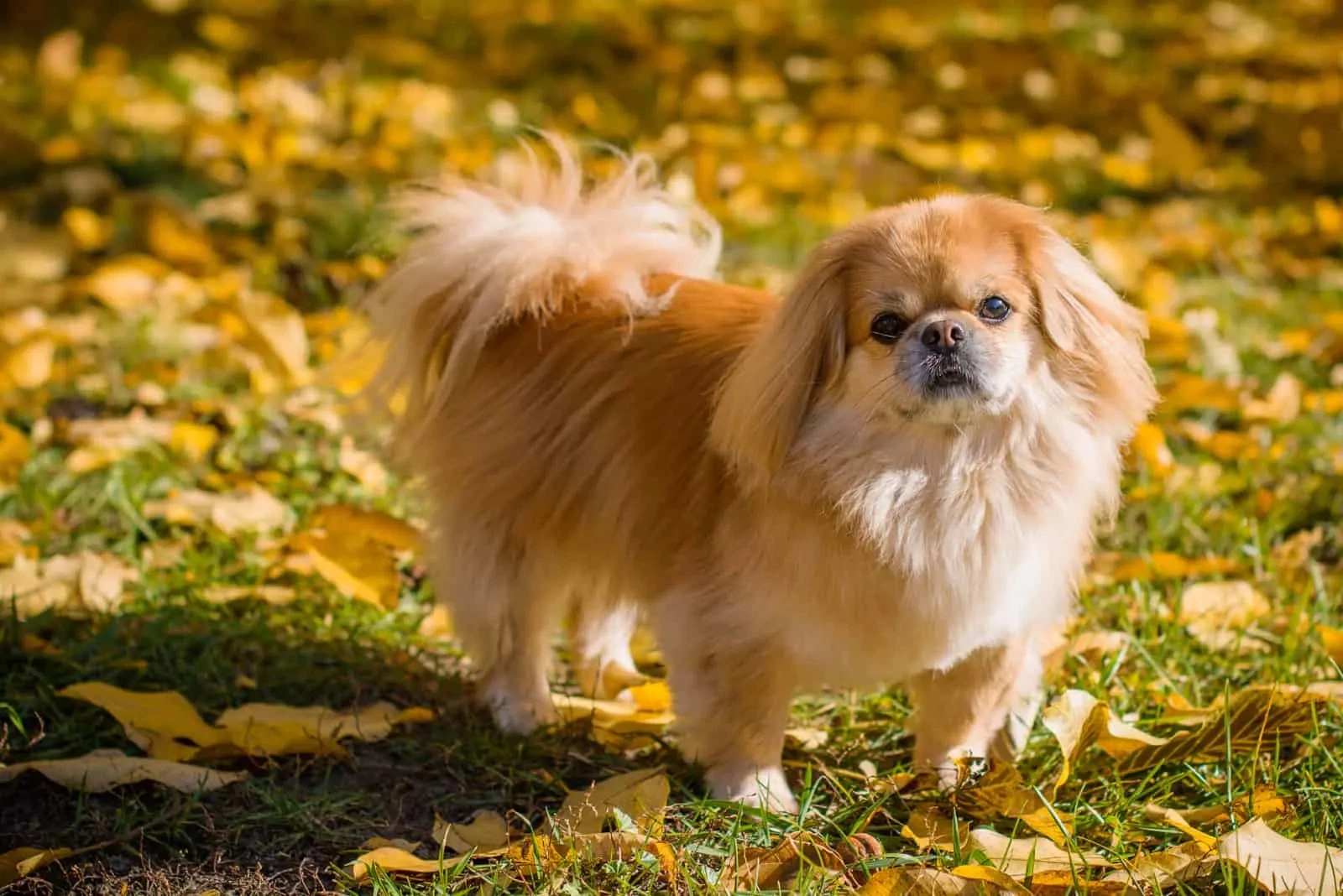
Preparing for Bedtime
A consistent bedtime routine ensures your Pekingese feels secure and ready for sleep. Establishing a predictable end to the day can prevent anxiety and promote better sleep habits. "Creating a calming bedtime environment is crucial for your Pekingese's overall well-being," advises Dr. Lisa Green from The Merck Veterinary Manual.
🌙 Set a Regular Bedtime: Consistency helps regulate their internal clock and promotes restful sleep.
🚪 Final Bathroom Break: Ensure they have ample opportunity to relieve themselves before bed.
🛏️ Comfortable Sleeping Area: Provide a designated, cozy space for rest, free from distractions.
In comparison to the more independent Dachshund, which may self-regulate its bedtime routine, Pekingeses thrive on structure and predictability. A well-established bedtime routine contributes to their mental and physical health, ensuring they wake up refreshed and ready for a new day, maintaining their active and lively demeanor.
With bedtime preparation in place, let's explore the common challenges you might face living with a Pekingese.
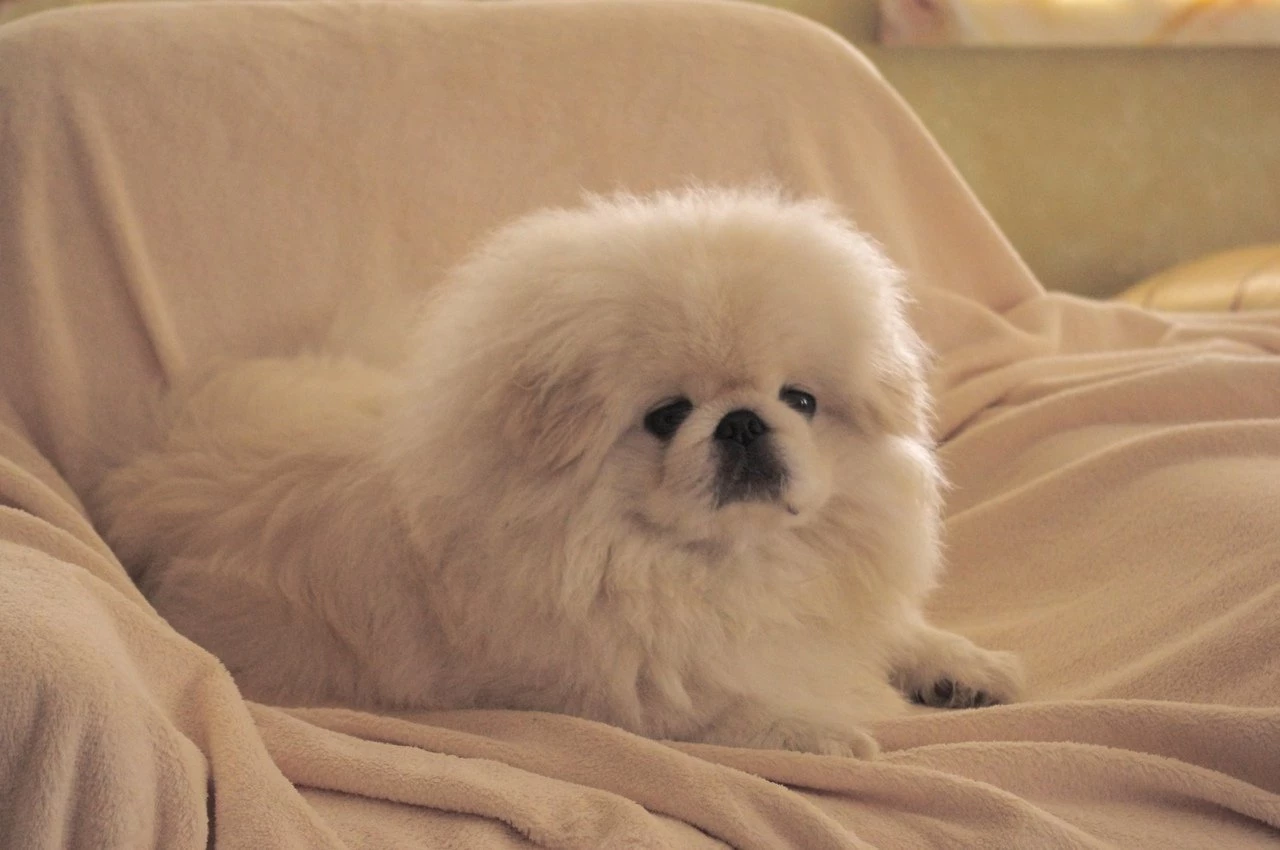
Common Challenges in Daily Life with a Pekingese
Pekingeses are known for their luxurious, double-layered coats that require regular grooming to maintain
skin health and manage shedding. "Frequent grooming helps reduce shedding and keeps your Pekingese's coat healthy," states Dr. Henry Adams from the American Society for the Prevention of Cruelty to Animals (ASPCA).
🧼 Regular Brushing: At least twice a week to remove loose hairs and prevent matting.
💇 Professional Grooming: Regular visits to the groomer for thorough maintenance and nail trimming.
🛁 Bathing Routine: Bathing every 4-6 weeks to keep the coat clean and free from parasites.
Compared to the low-shedding Poodle, Pekingeses require more intensive grooming efforts. Proper maintenance not only keeps your home cleaner but also ensures your Pekingese remains comfortable and free from skin issues, maintaining their beautiful and distinctive appearance.

Addressing Health Concerns
Pekingeses are generally healthy dogs but are prone to specific health issues, including brachycephalic airway syndrome, eye problems, and hip dysplasia. "Regular veterinary check-ups and proactive health management are vital to mitigate common ailments in Pekingeses," advises Dr. Samantha Reed from VCA Animal Hospitals.
🩺 Routine Vet Visits: At least twice a year for health screenings and early detection of potential issues.
📊 Monitoring Weight: Prevent obesity to reduce joint stress and associated health problems.
💉 Vaccinations and Preventatives: Stay up-to-date with necessary treatments to protect against diseases and parasites.
In contrast to the generally robust Labrador Retriever, Pekingeses require diligent attention to their health due to their predisposition to certain genetic conditions. Early detection and management can significantly improve their quality of life and longevity, ensuring your Pekingese remains a healthy and active member of your family, ready to engage in all the activities you love.

Conclusion
Daily life with a Pekingese is a blend of structured routines, consistent training, and attentive care. Their intelligence and loyalty make them exceptional companions, but they also demand a higher level of commitment in terms of training, nutrition, and health management. By understanding and anticipating the needs of your Pekingese, you can ensure a fulfilling and harmonious relationship. Whether you're navigating their dietary changes, managing grooming routines, or addressing behavioral challenges, informed and proactive ownership is key.
Ready to embark on this rewarding journey? Start preparing today to provide your Pekingese with the best possible life.
External Resources
1 . American Veterinary Medical Association (AVMA)
4. PetMD
5. American Animal Hospital Association (AAHA)
6. The Merck Veterinary Manual
7. ASPCA
8. The Veterinary Information Network (VIN)
Recommendations from Veterinarians
"A consistent morning routine helps in reducing anxiety and promotes a sense of security in Pekingeses." — Dr. Laura Simmons, AVMA
"Providing diverse activities for your Pekingese enhances their cognitive functions and overall well-being." — Dr. Mark Thompson, VCA Animal Hospitals
"Integrating training sessions into your daily routine not only teaches obedience but also strengthens your relationship with your Pekingese." — Dr. Emily Rogers, AKC
"Addressing these issues promptly with appropriate training techniques is crucial for a harmonious household." — Dr. Sarah Nguyen, PetMD
"A balanced diet tailored to your Pekingese's life stage supports their overall health and energy levels." — Dr. Karen White, VIN
"Pekingeses, due to their high activity levels, require constant access to fresh water to prevent dehydration." — Dr. Robert King, Pet Health Network
"Quality bonding time in the evening fosters trust and deepens the emotional connection between you and your Pekingese." — Dr. Angela Brooks, AAHA
"Creating a calming bedtime environment is crucial for your Pekingese's overall well-being." — Dr. Lisa Green, Merck Veterinary Manual
"Frequent brushing helps reduce shedding and keeps your Pekingese's coat healthy." — Dr. Henry Adams, ASPCA
"Regular veterinary check-ups and proactive health management are vital to mitigate common ailments in Pekingeses." — Dr. Samantha Reed, VCA Animal Hospitals

